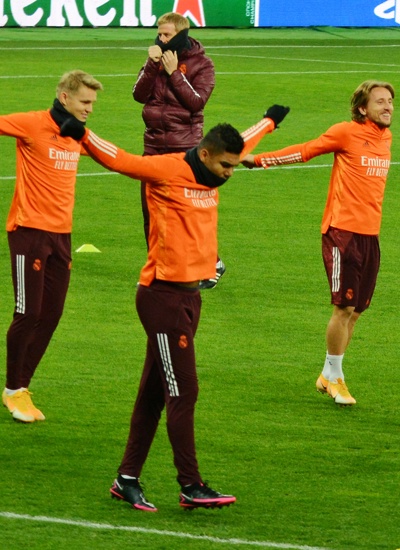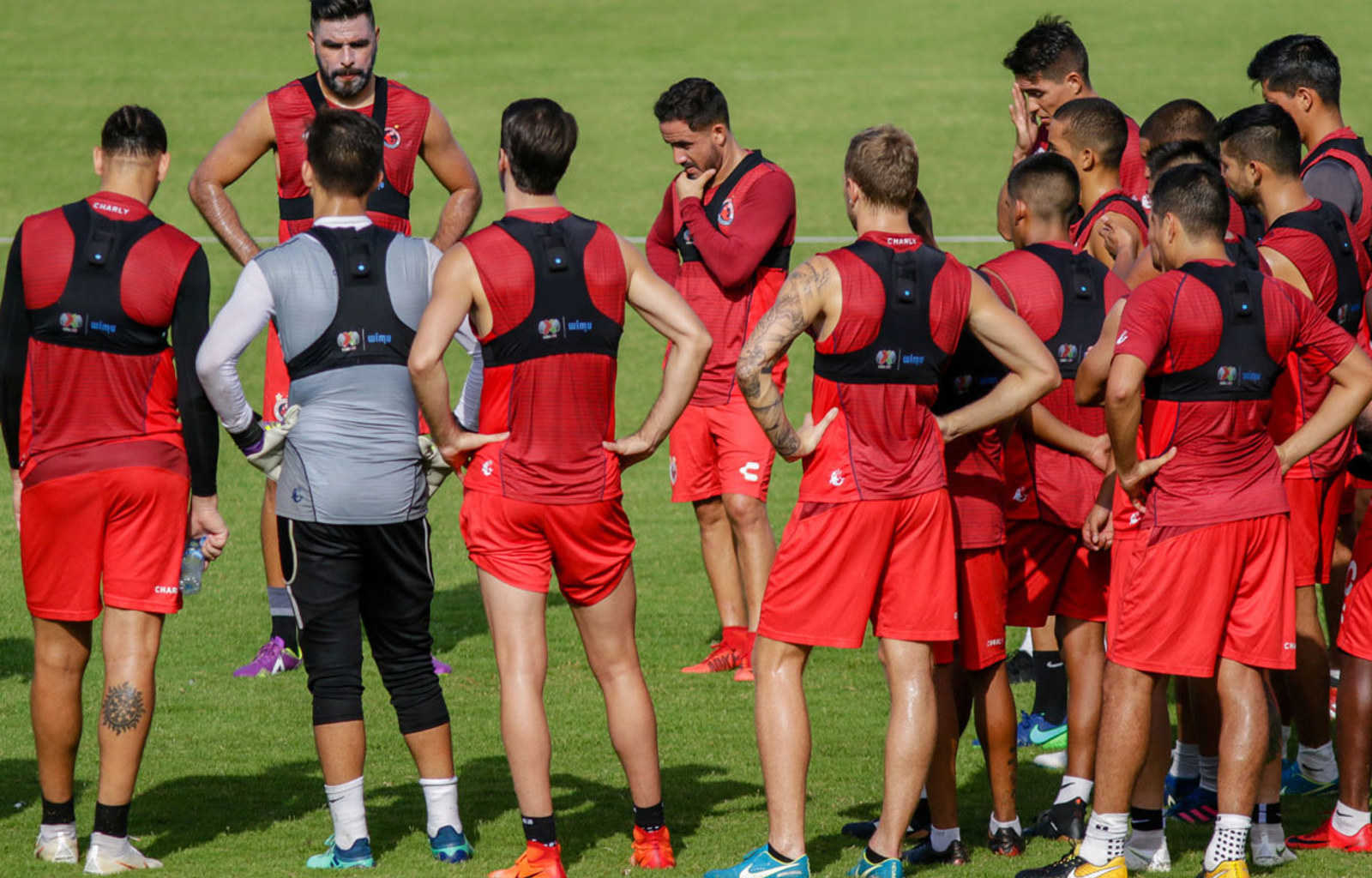
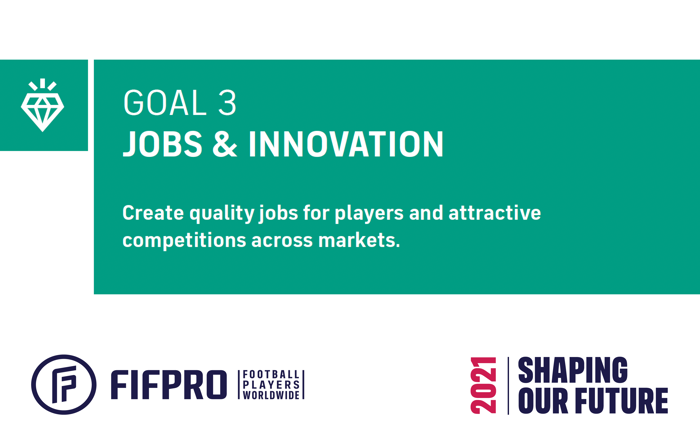
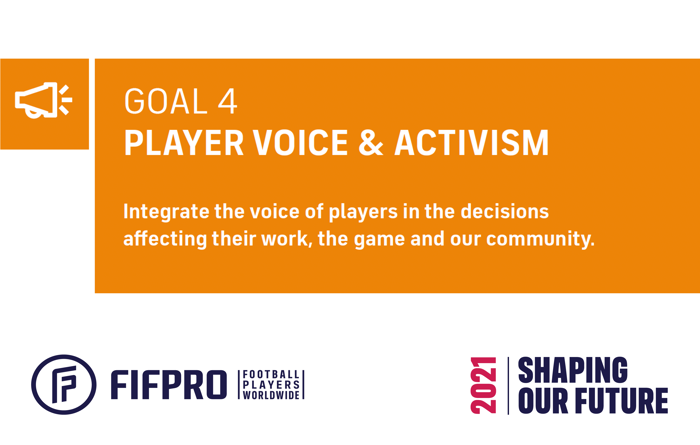

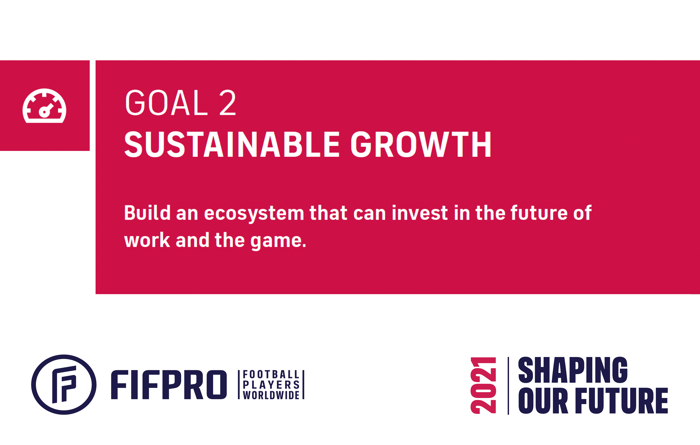
In addition to creating a more stable industry (goal 1) and ensuring sustainable growth (goal 2), it is crucial to recall how the industry has evolved over time and identify the systemic trends shaping its current development path in order to shape its future development effectively. Systemic trends have triggered major competition reforms in the past that have not only significantly altered the employment conditions of players, but also fundamentally changed the development path of the entire football industry. Goal 3 of the 2021 FIFPRO Shaping our Future report aims to increase these positive developments.
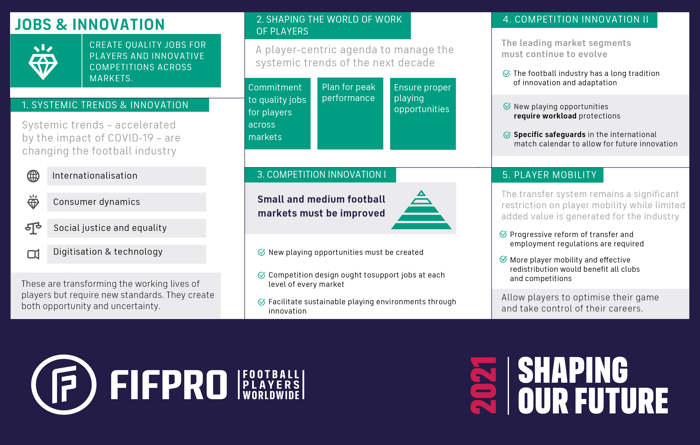
1 Systemic trends & innovation
Shifts in the global landscape have been transforming our world in a profound way: with technological changes and the development of the digital economy alongside demographic growth, the globalisation of trade, changes in demand, individual aspirations, social justice issues and more shaping our societies and industries. Any analysis of the football industry must consider how the game is influenced by these global trends, as well as how working and playing conditions for players will be impacted in the future.
“TODAY’S INVESTMENT IN THE FUTURE WORLD OF WORK OF PLAYERS WILL CHARACTERISE THE BENEFITS AND GROWTH OF THE GAME TOMORROW”
2 Shaping the world of work of players
Without adequate competition formats and playing opportunities, football markets and competitions cannot reach their potential. Today’s investment in the future world of work of players will characterise the benefits and growth of the game tomorrow. This includes decent working conditions under which players train and perform to reach their peak.
3 Competition innovation I
The major systemic shifts under way will have both disruptive and transformative effects on the football industry and its competition landscape, including playing conditions. Major investments are needed to shape and guide these transformations to create a competition landscape that provides decent working conditions. Football markets must now prioritise long-term investments that favour innovative solutions for competitions across all market segments to shape a sustainable future.
“FOOTBALL MARKETS MUST NOW PRIORITISE LONG-TERM INVESTMENTS THAT FAVOUR INNOVATIVE SOLUTIONS FOR COMPETITIONS”
4 Competition innovation II
The current data on clubs in the top market segments of the global football industry in the summer transfer window of 2020 indicates lower – but still stable – club finances, even in times of uncertainty and decreased revenues.
The innovative commitment and character of the football industry must focus on all segments and create new and more innovative competition formats for a larger group of players and clubs to protect and foster the diversity of the global game. This includes the national and international levels of competition. Suitable playing opportunities are fundamental for players to reach peak performance and to avoid over and underload. In addition to competition design, a holistic review of the international match calendar is needed to direct the development of the professional game in the next decade.
“A MEANINGFUL REFORM OF THE TRANSFER SYSTEM AND RELATED REGULATIONS IS REQUIRED”
5 Player mobility
FIFPRO considers that a meaningful reform of the transfer system and related regulations is required not only to remove disproportionate restraining measures for the movement and freedom of players as employees, but also to benefit the overall industry and reduce speculative management practices as well as abusive business practices in some parts of the football industry.
Next up: Goal 4 – Player voice & Activism
Click on the image below to learn more about goal 4: Player voice & Activism


